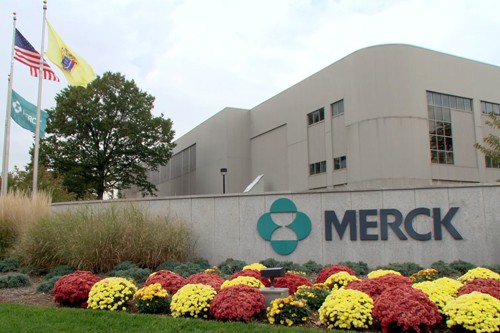
Merck & Co’s – known as MSD outside the US and Canada – Keytruda has received an approval from the US Food and Drug Administration (FDA) for the treatment of advanced oesophageal cancer.
The PD-L1 inhibitor is now authorised for the treatment of patients with locally advanced or metastatic oesophageal or gastroesophageal junction (GEJ) cancer who cannot undergo surgical resection or definitive chemoradiation, in combination with platinum- and fluoropyrimidine-based chemotherapy.
The approval is based on results from the KEYNOTE-590 trial that evaluated Keytruda plus chemotherapy as a first line-treatment for advanced oesophageal cancers.
In this trial, Keytruda plus chemotherapy cut the risk of disease progression or death by 35% in patients with locally advanced or metastatic oesophageal and GEJ cancer.
Keytruda plus chemotherapy also significantly improved overall survival in this trial, reducing the risk of death by 27%.
Merck & Co’s immunotherapy treatment is the first checkpoint inhibitor to show superior overall survival, progression-free survival and objective response rates for this patient population – regardless of PD-L1 expression status.
“There have been few advances in improving survival outcomes in the first-line treatment setting for oesophageal cancer over the last three decades,” said Roy Baynes, senior vice president and head of global clinical development, chief medical officer, Merck Research Laboratories.
“We are committed to putting patients first and continuing our research to help advance new approaches to potentially extend the lives of people with cancer. We thank all of the patients, their caregivers and healthcare professionals who participated in the study,” he added.
Keytruda is already approved as a monotherapy for second-line treatment of unresectable advanced, recurrent or metastatic oesophageal squamous cell carcinoma, but only for patients whose tumours express PD-L1.
The first-line approval for Keytruda gives it an advantage over rival checkpoint inhibitor Opdivo (nivolumab) from Bristol Myers Squibb (BMS).
BMS is also working towards gaining approval for Opdivo in the first-line setting, having revealed promising data for the PD-1 inhibitor at this treatment stage at ESMO 2020.
In the CheckMate-577 trial involving patients with oesophageal or GEJ cancers who had previously received neoadjuvant chemoradiation therapy (CRT) and tumour resection, Opdivo doubled the median disease-free survival rate compared to placebo.




